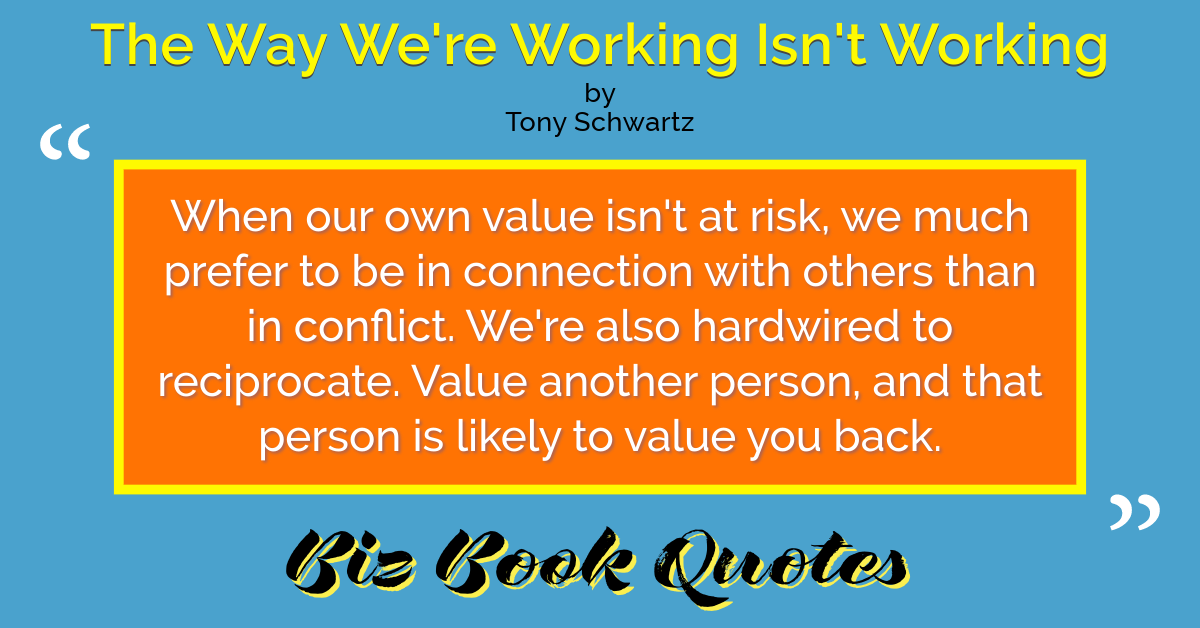 |
When our own value isn’t at risk, we much prefer to be in connection with others than in conflict. We’re also hardwired to reciprocate. Value another person, and that person is likely to value you back.
|
157 |
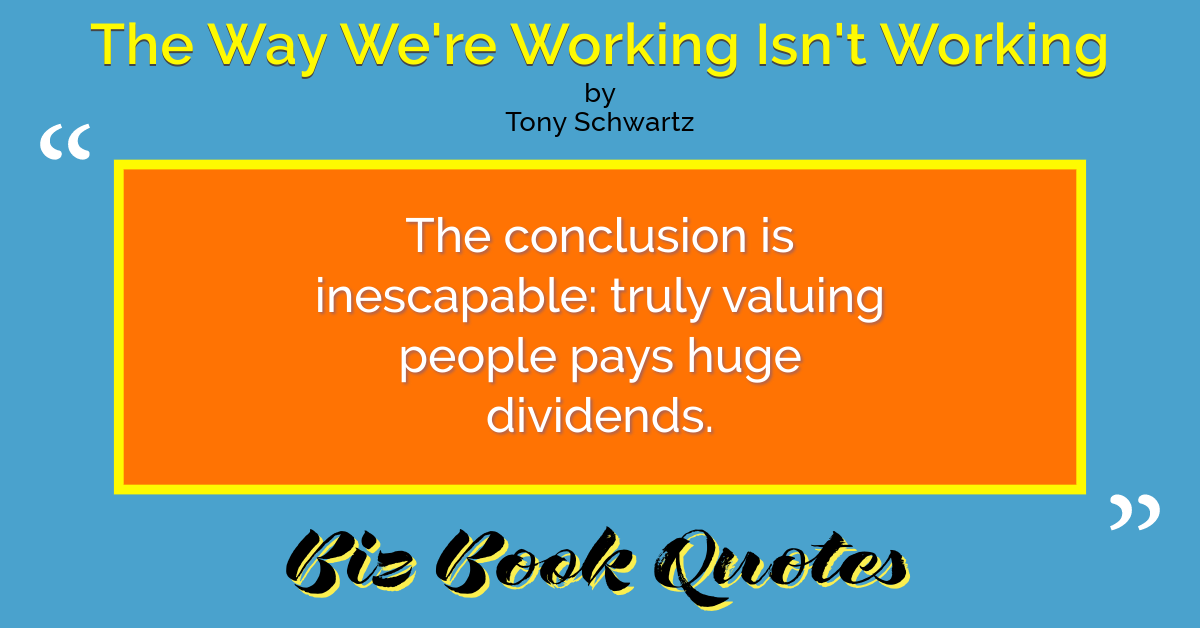 |
The conclusion is inescapable: truly valuing people pays huge dividends.
|
162 |
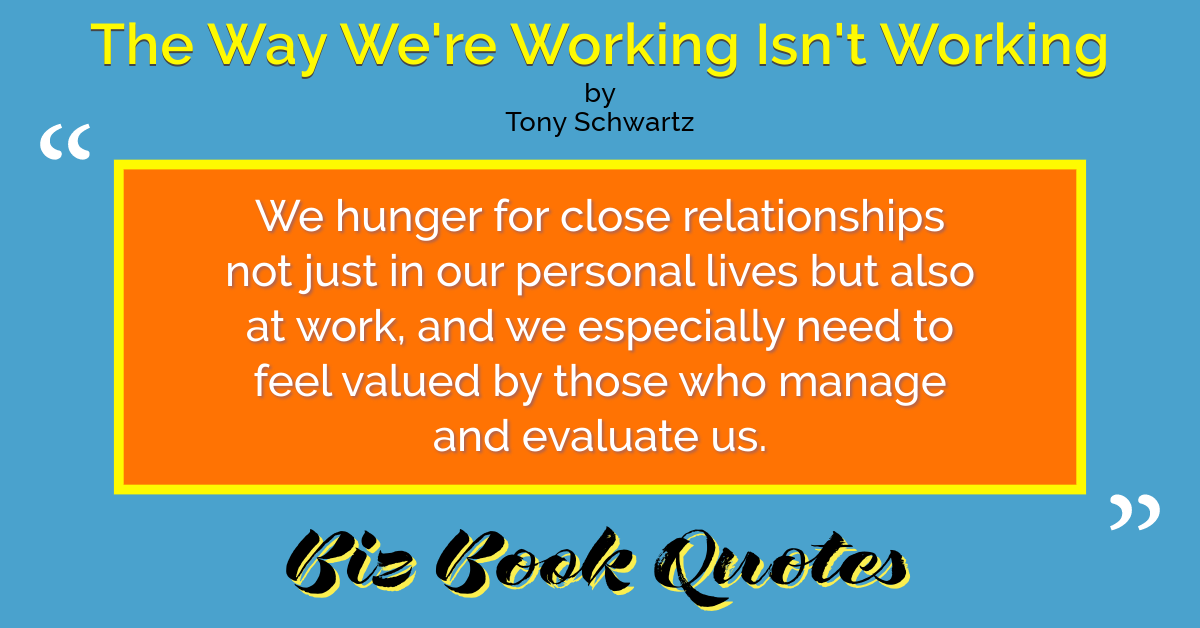 |
We hunger for close relationships not just in our personal lives but also at work, and we especially need to feel valued by those who manage and evaluate us.
|
167 |
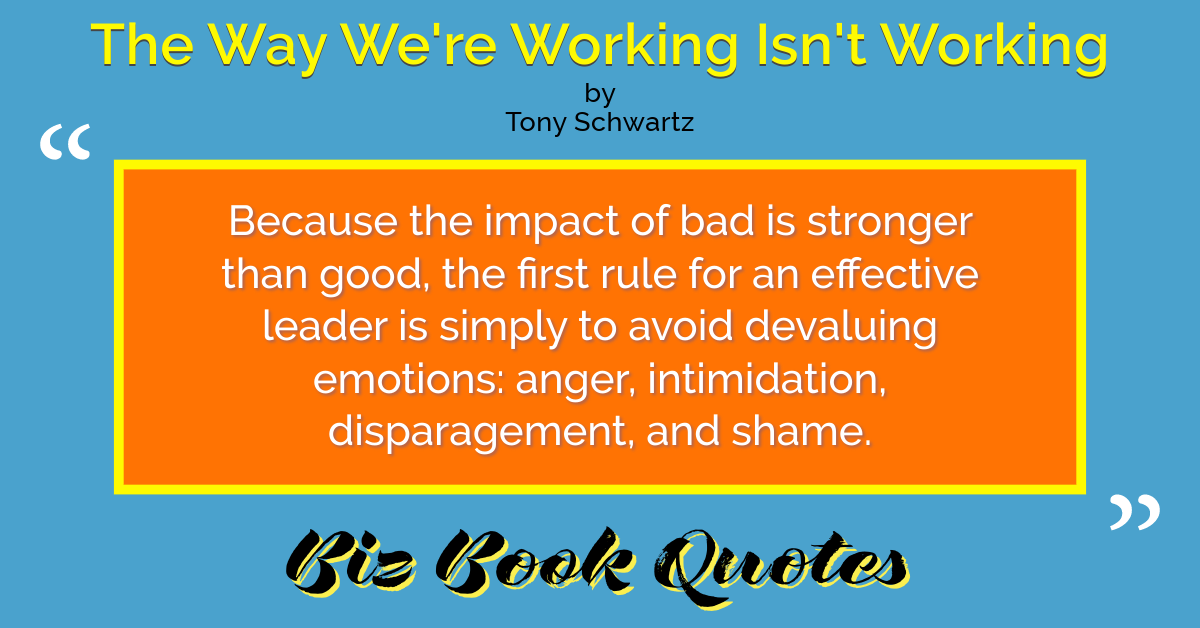 |
Because the impact of bad is stronger than good, the first rule for an effective leader is simply to avoid devaluing emotions: anger, intimidation, disparagement, and shame.
|
168 |
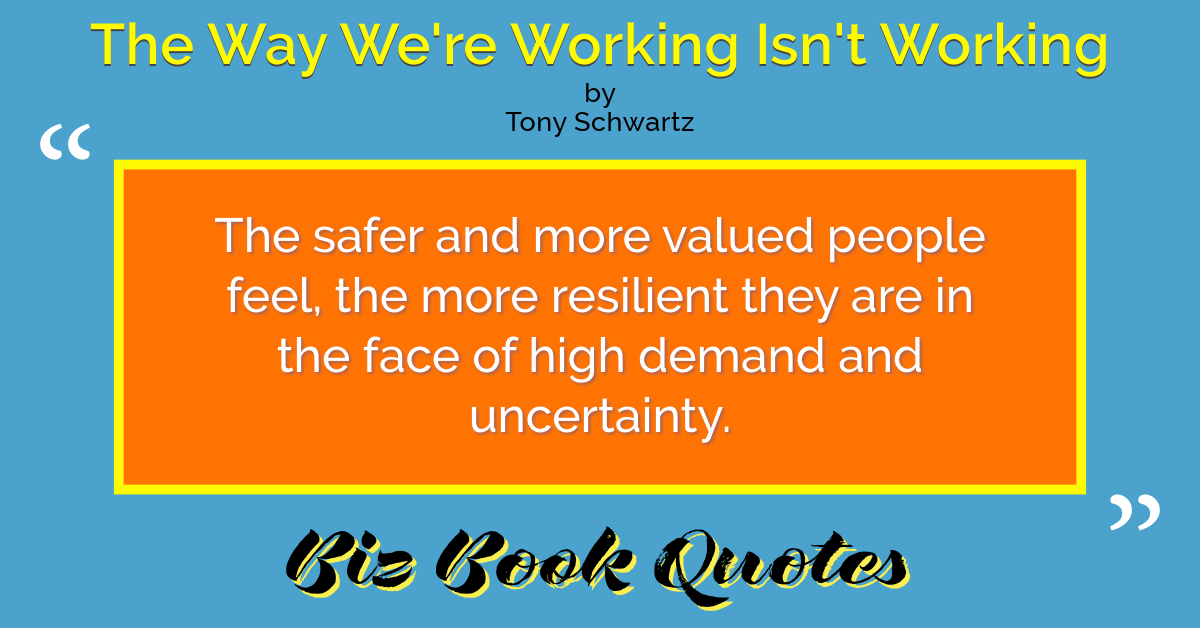 |
The safer and more valued people feel, the more resilient they are in the face of high demand and uncertainty.
|
170 |
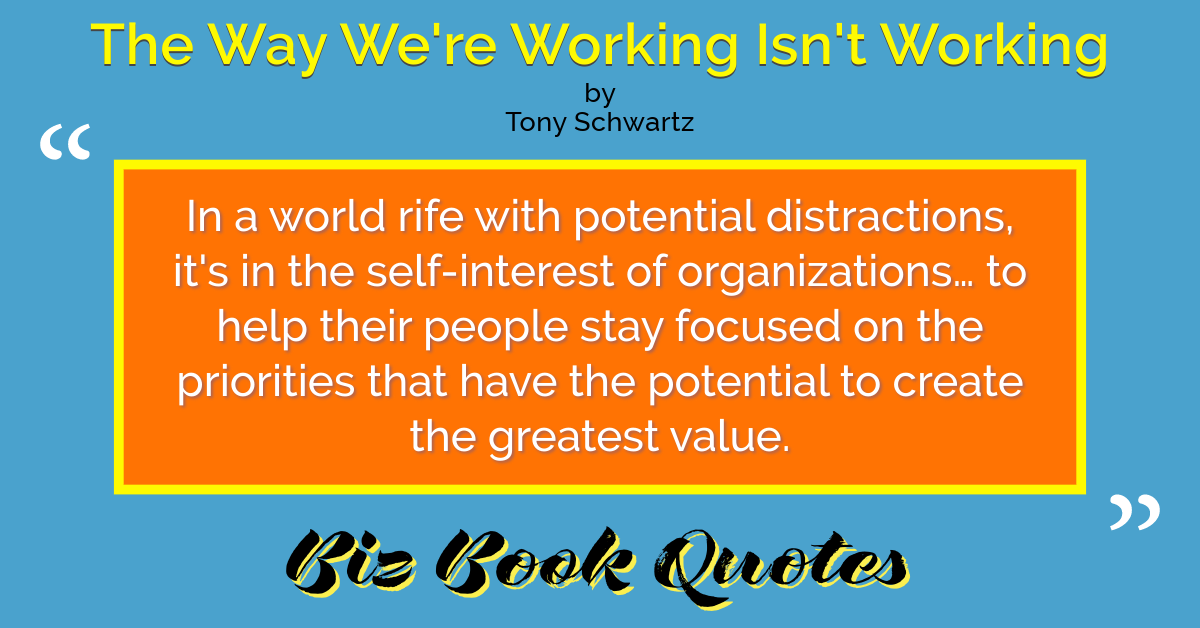 |
In a world rife with potential distractions, it’s in the self-interest of organizations… to help their people stay focused on the priorities that have the potential to create the greatest value.
|
232 |
 |
…no one can take away your values, and knowing who you are goes a long way.
|
238 |
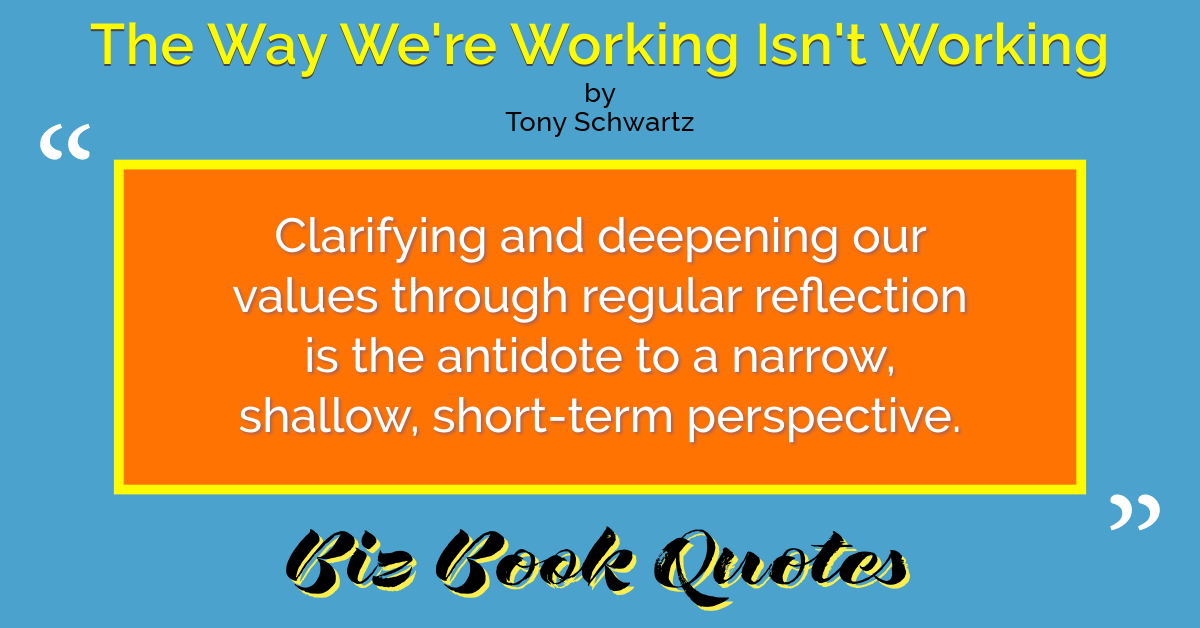 |
Clarifying and deepening our values through regular reflection is the antidote to a narrow, shallow, short-term perspective.
|
242 |
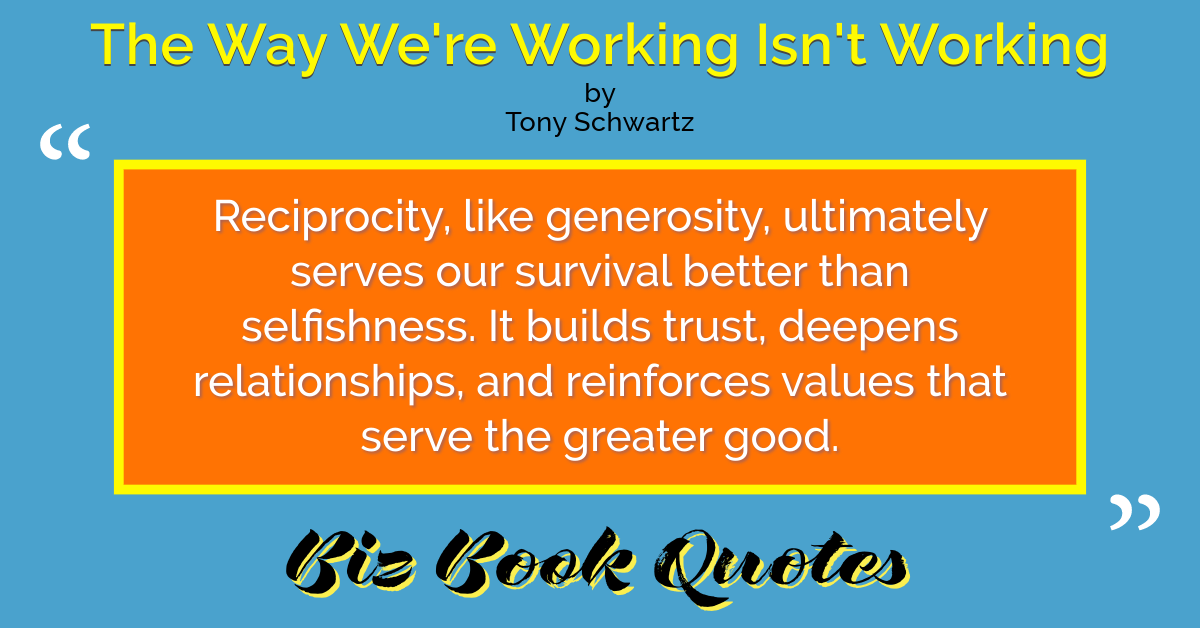 |
Reciprocity, like generosity, ultimately serves our survival better than selfishness. It builds trust, deepens relationships, and reinforces values that serve the greater good.
|
246 |
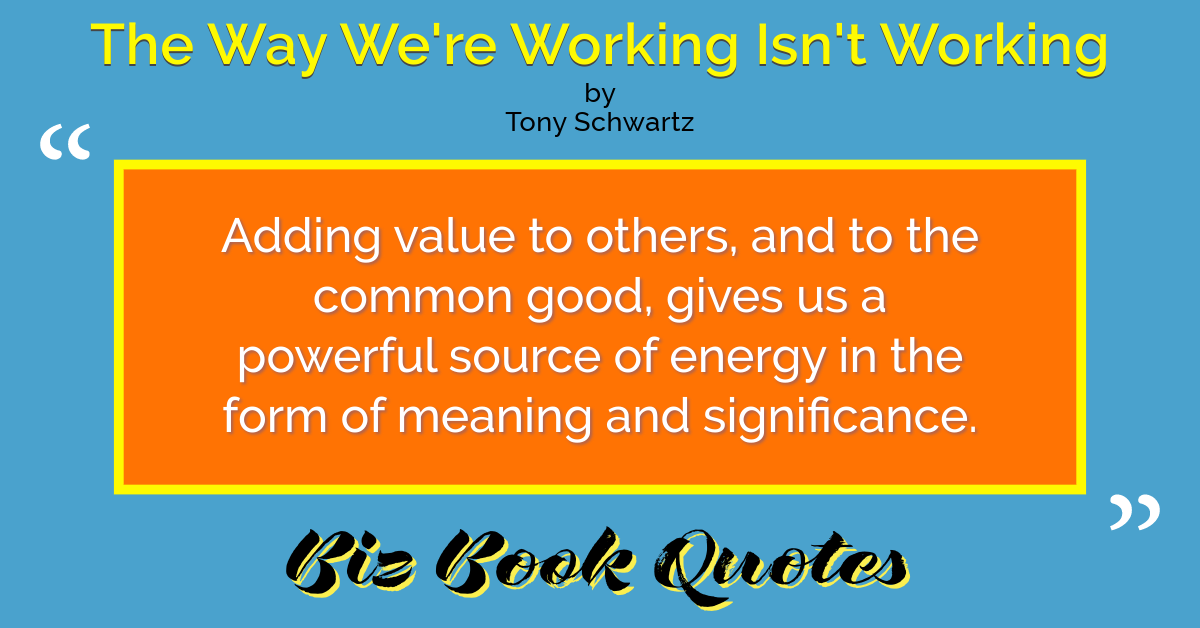 |
Adding value to others, and to the common good, gives us a powerful source of energy in the form of meaning and significance.
|
249 |